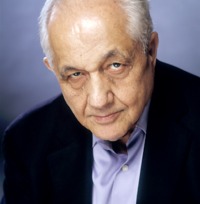The American Cinema: Directors and Directions, 1929-1968
Since its publication in 1968, The American Cinema has been the manifesto of the auteur theory. Written by Andrew Sarris, the theory's chief...
Also Available in:
- Amazon
- Audible
- Barnes & Noble
- AbeBooks
- Kobo
More Details
Since its publication in 1968, The American Cinema has been the manifesto of the auteur theory. Written by Andrew Sarris, the theory's chief advocate, the book traces the history of movies by examining the careers of more than 200 film directors. Covering everyone from D.W. Griffith to Francis Coppola, Orson Welles to Roman Polanski, Sarris argues that directorial greatness is marked by a personal style and consistency of excellence that can be traced throughout a career. Sarris's commentary is sometimes worshipful, sometimes acrid, but almost always quotable. Alfred Hitchcock is "the supreme technician of the American cinema." John Huston coasted "on his reputation as a wronged individualist with an alibi for every bad movie." Stanley Kubrick holds "a naive faith in the power of images to transcend fuzzy feelings and vague ideas." Michelangelo Antonioni makes films so pessimistic and alienating that Sarris dubs him "Antoniennui."
You may not agree with all of Sarris's assessments, but this book provides the best possible opportunity to consider auteurism, an approach to cinema that, in an age that reveres Scorsese, Spielberg, and Tarantino, seems more relevant than ever. The book closes with an essay called "The Auteur Theory Revised," Sarris's attempt at a definitive theoretical statement. --Raphael Shargel
- Format:
- Pages: pages
- Publication:
- Publisher:
- Edition:1st Da Capo Press ed, First Da Capo Press
- Language:
- ISBN10:0306807289
- ISBN13:9780306807282
- kindle Asin:0306807289







